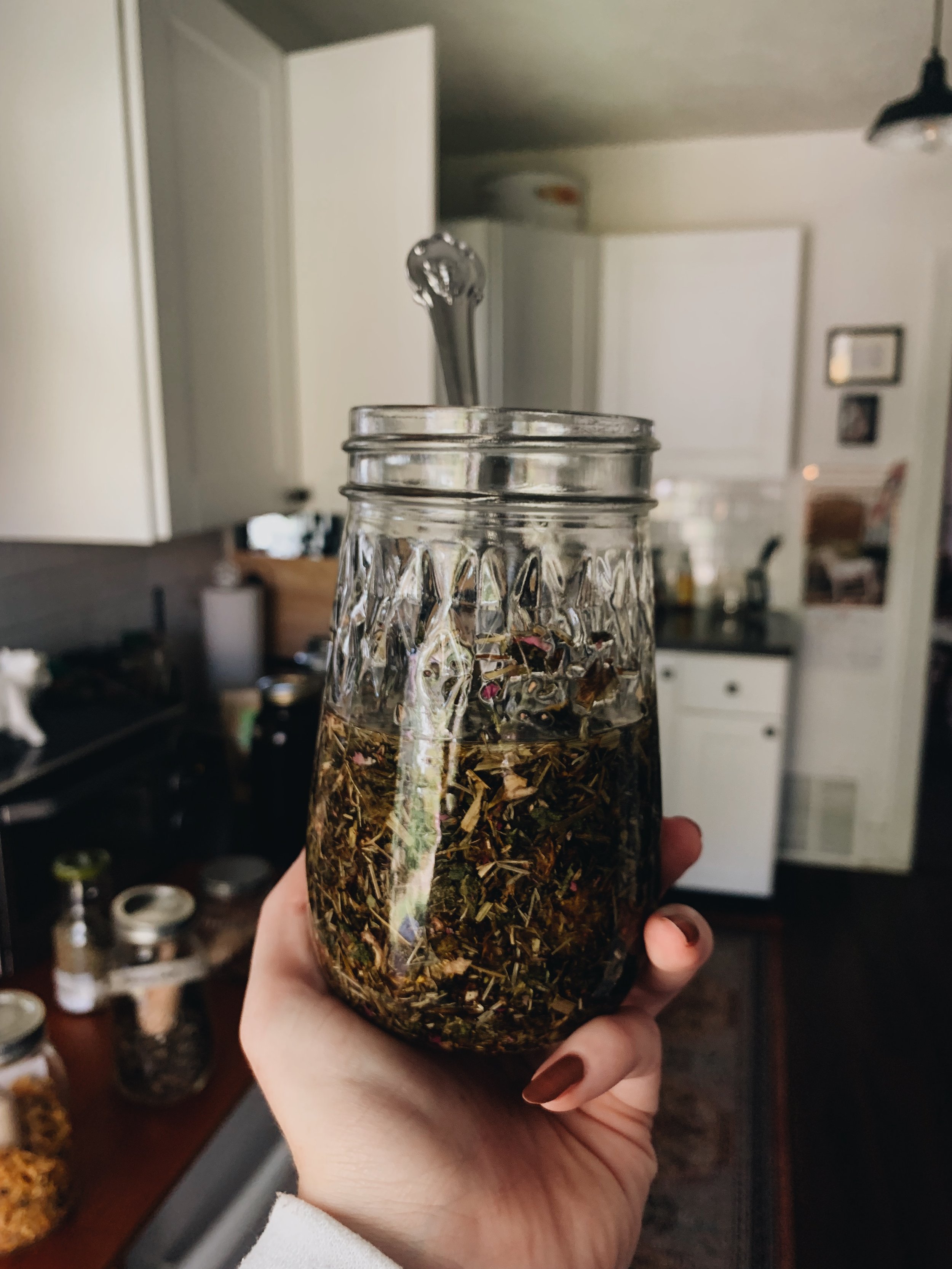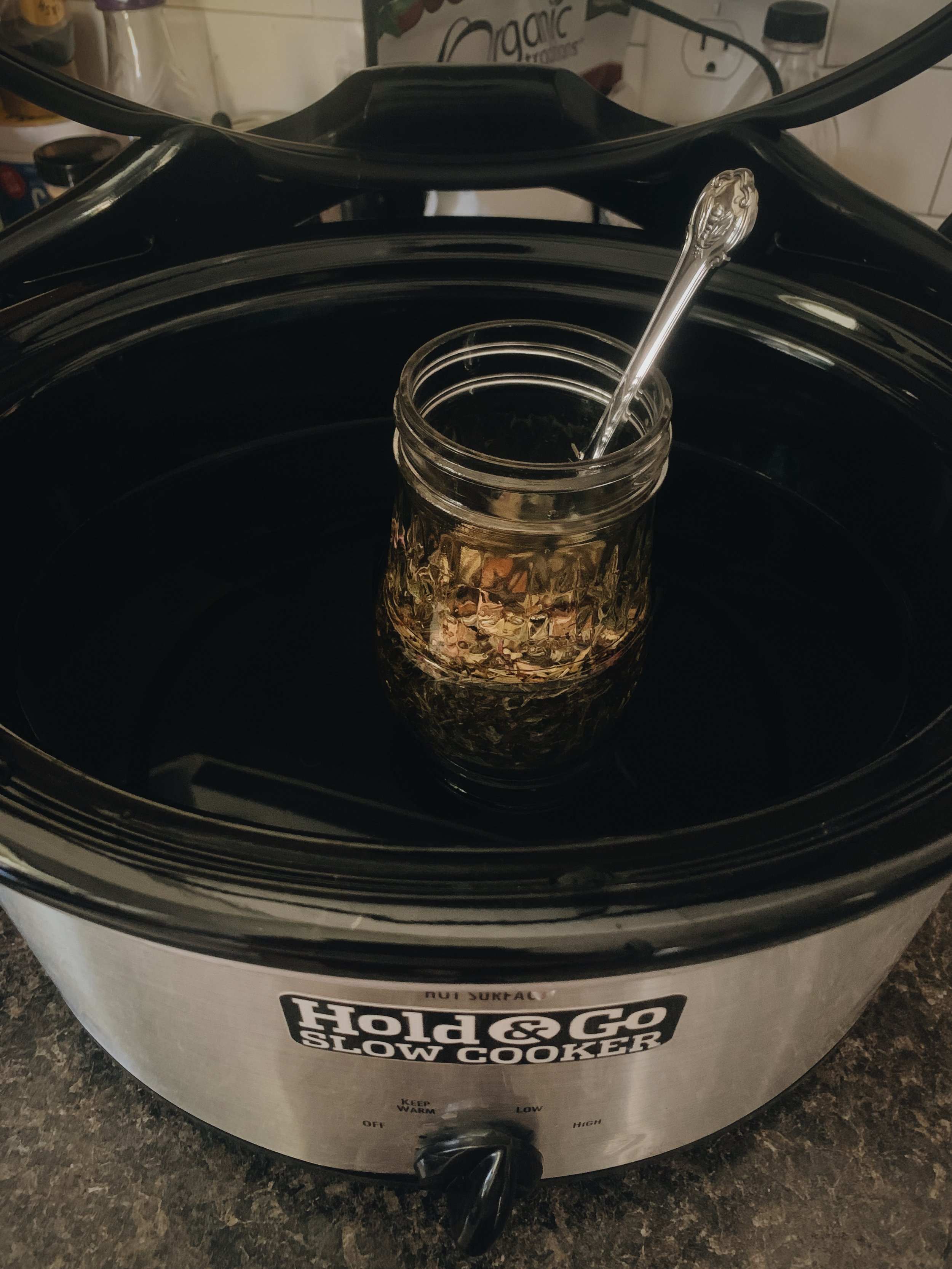Birth Fears (and two recipes for surgical birth recovery)
Beloved birthing person - you did not “manifest” your worst fear in labor.
(even though I honor that sometimes our biggest fears are often exactly what comes to fruition.)
I’m not someone who believes we manifest our biggest fears during birth by dwelling on them too much during pregnancy. Nor do I think a worst fear coming true during birth means you didn’t do enough to confront or process your fears before birth.
But I DO believe that our worst fears naturally hold powerful information about experiences our intuitions might already know are coming. Or at least our fears represent potential experiences that are necessary for our soul’s growth/purpose, whether we’re aware or not.
My biggest birth fear was a hospital transfer. I’d planned a home birth, I did everything “right” nutritionally, educationally, mentally, spiritually to give myself the best chances of that happening.
When listening to birth stories on the podcast Birthful, I read a description of someone’s story with HELLP syndrome and in the short synopsis it said “a very rare, but life threatening condition resulting in…” I stopped reading there. In my head I said “nope. Not gonna manifest that.”
The day after my due date, before even really beginning to labor much at home at all, after being up three nights in a row with unbearable and not normal pain in what I now know was my liver, I transferred to the hospital with a diagnosis of HELLP Syndrome.
I cried in triage not even because of the scary diagnosis, but because I was mourning the loss of my birth plan. I couldn’t safely go home. My personal worst fear realized.
I know I’m not alone in the thing I feared most eventually maybe inevitably, becoming my story, but I don’t think our own fixations on our fears are to blame. I don’t really necessarily know what *is* to blame. So in a way I think our fears can sometimes be speaking to something we, on some level, for whatever reason, already know is going to happen.
I’m not one to need to find purpose in traumatic experiences, (nor do I think that’s a good idea for everyone,) but it’s undeniably true for me. My purpose was solidified after my birth plan went awry.
My hospital transfer humbled me in my self-righteous rigidity in home birth being best for everyone. While simultaneously teaching me first hand just how non-conducive to physiologic birth and bodyfeeding the hospital environment is. I could no longer talk second hand shit about hospital birth based on what I heard - now I KNEW, first hand, why it sets you up for discomfort, coercion, compromising on your plans and beliefs, disassociation, difficulty bodyfeeding, trauma, etc.
I wasn’t a doula yet when I went into my birth, and at the time I vehemently denied whatever inkling I had that I might go into birthwork. I truly had no idea that I’d some day write a book for pregnant people. So little did I know that all that first-hand information was something I needed to have.
I came out of my birth writing. I was already a writer, that’s what I went to school for, but I’d never had so much to say. Before I even left the hospital, I started sharing my words and experiences almost immediately.
In both what I wrote and how it it was received, I now look back and see the early makings of my book. People’s validating, encouraging feedback to my early days of writing about the reproductive continuum - my miscarriage, my pregnancy, my long and difficult postpartum recovery - told me that I was writing about something important, something not talked about (at least not much 4/5 years ago,) and that writing about it in a very *me* way (i.e. blunt, TMI, heart-driven, pearl-clutchingly honest) was for some reason important and helpful to people.
Now I know why.
Postpartum Herbal Infusion:
❤️🩹Red raspberry leaf (for uterine toning and nutrient replenishment, ⚠️ not for pregnant or postpartum folks who have PCOS or endometriosis)
❤️🩹Nettles (for iron and other nutrient replenishment)
❤️🩹Alfalfa (for vitamin and nutrient replenishment)
❤️🩹Oatstraw (for calcium to support bodyfeeding and other nutrient replenishment)
❤️🩹Calendula (soothing and tissue healing)
❤️🩹Hibiscus (for blood flow)
❤️🩹Hawthorn berries (for blood flow)
❤️🩹Horsetail (for tissue repair and recovery)
❤️🩹Red Dates (for bringing warmth back to the body)
❤️🩹Goji berries (for immune support)
(Note! These are extremely truncated versions of the functions of all these herbs! They do so much more than just what I mentioned including assistance in emotional/anxiety support when recovering from the additional feelings of an unwanted surgical birth.)
Combine roughly a tablespoon of each of these herbs together in a medium-sized stainless steel or glade pot. Bring the water just barely to a boil, and then turn off the heat, stirring in the herbs, and covering with a lid. Allow to steep for at least 6 hours, can steep up to 24 hours. Strain out the herbs with a cheesecloth or fine mesh strainer. Add desired sweetener or juice.
Surgical Birth Scar Herbal Recovery Balm:
❤️🩹Comfrey
❤️🩹Shepherds purse
❤️🩹Calendula
❤️🩹Horsetail
❤️🩹Rose petals
❤️🩹Plantain leaf
❤️🩹Jojoba oil and sunflower oil
❤️🩹Beeswax
These herbs serve the purpose of being soothing, antibacterial, tissue reparative, anti-inflammatory among other things.
In a glass jar, add about a tablespoon of each herb. Add enough oil to completely cover the herbs (and then some.) Fill a crock pot with about 3-4 inches of water, and place a towel at the bottom (so the glass is not in direct contact with the ceramic. Keeping the glass jar open, place it in the water and heat on the low of “keep warm” setting (making sure that NO water gets inside of the jar.) You want to keep it at between 100-120 degrees F. After infusing for several hours, strain out the herbs and add in about two tablespoons of melted beeswax to give it more of a solid texture that’s easier to use.
This balm can be used two weeks post-op to aid in healing, (unless otherwise directed by your doctor) and can be used at any in the future for scar remediation and mobilization.








